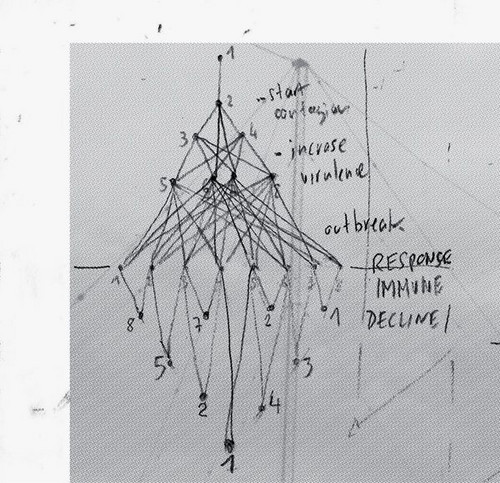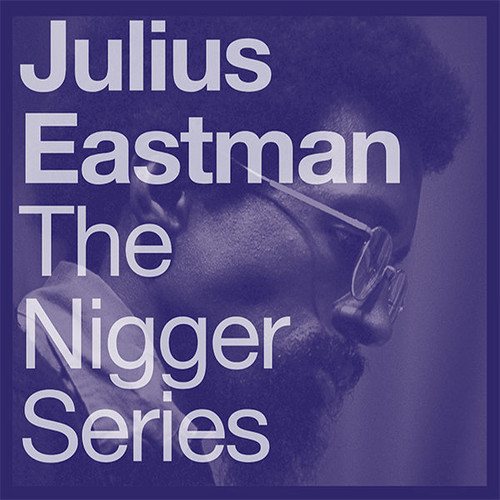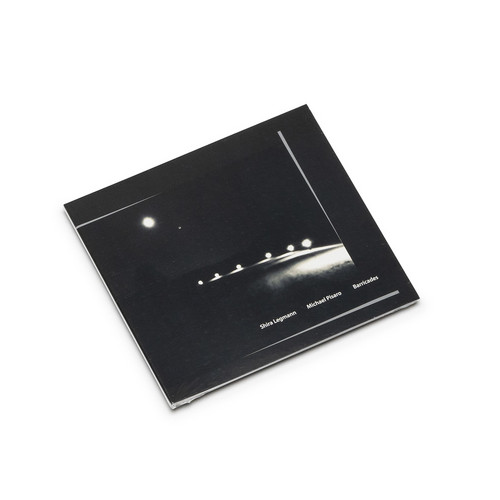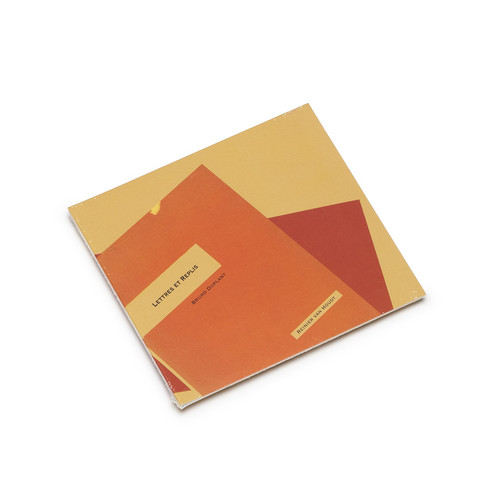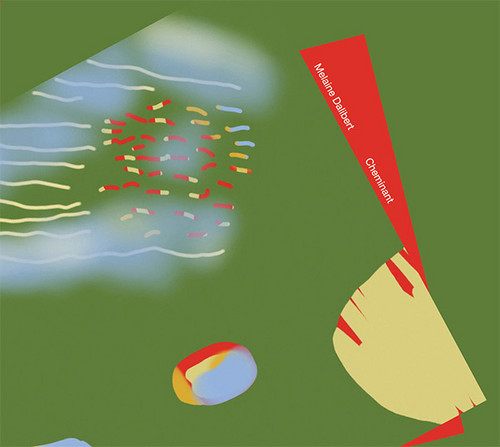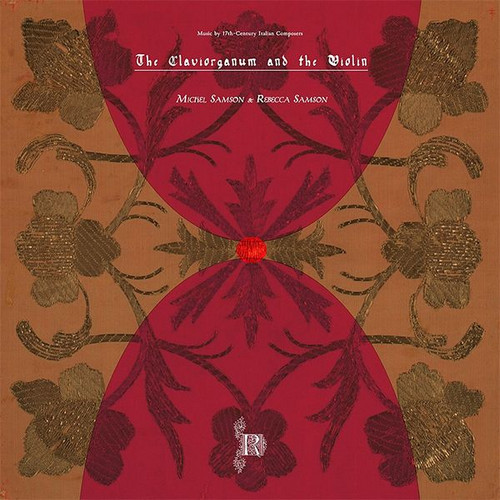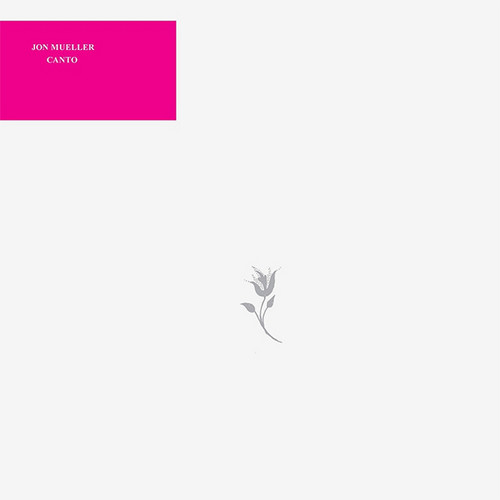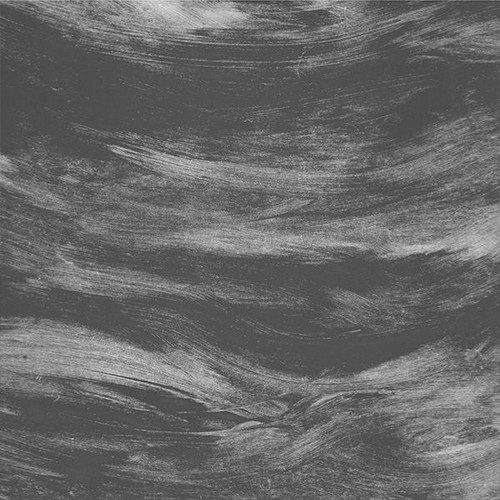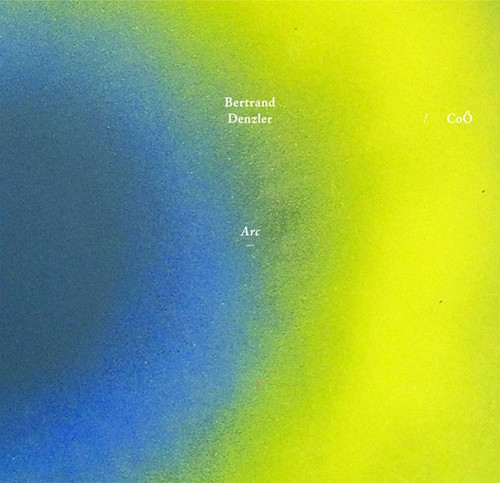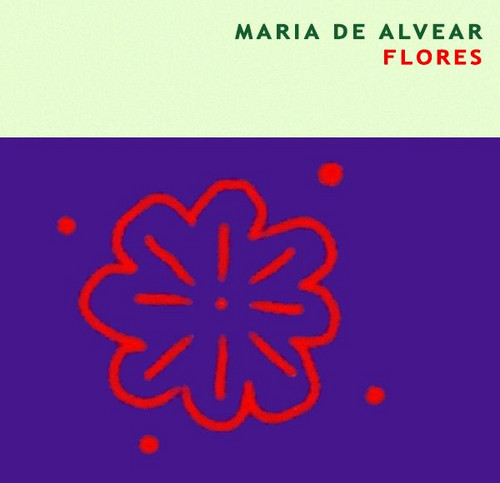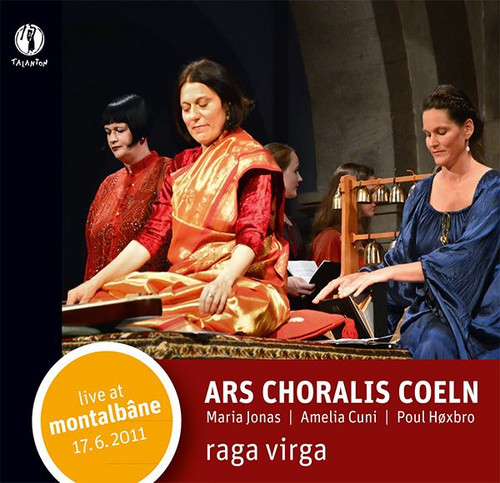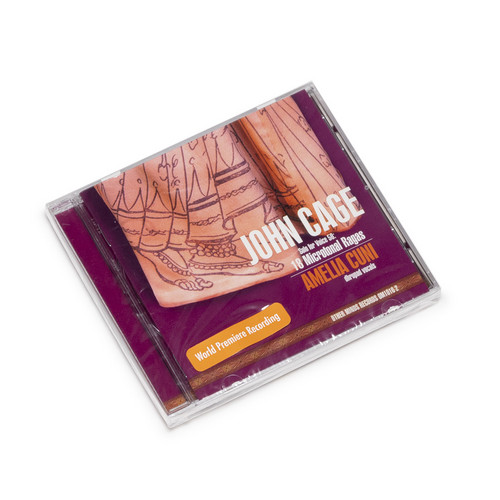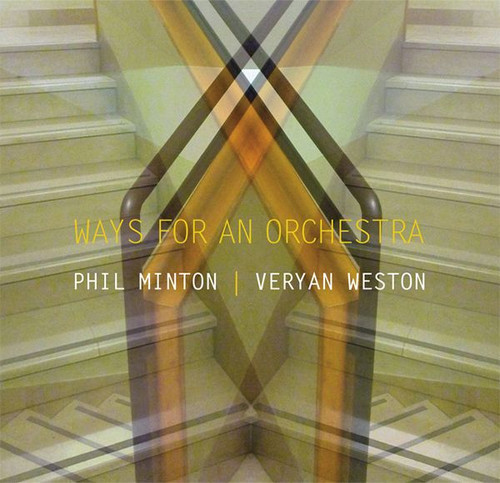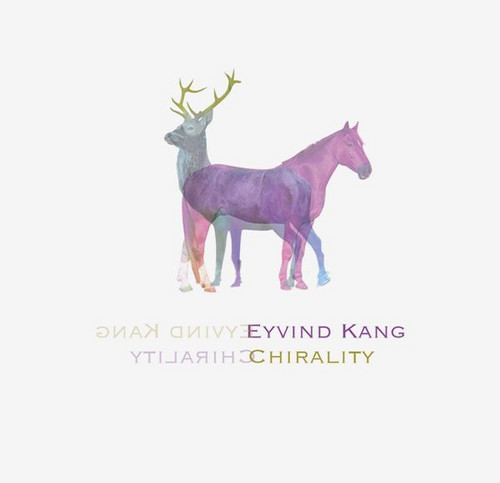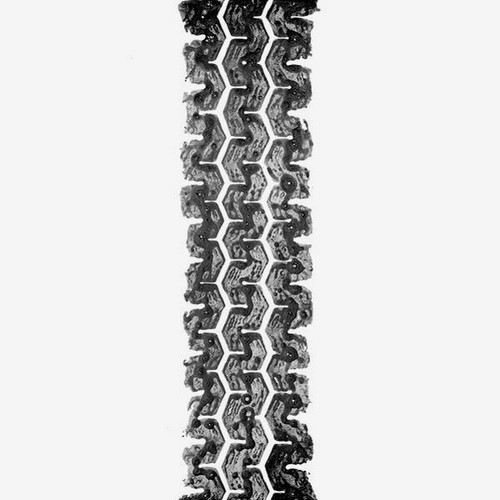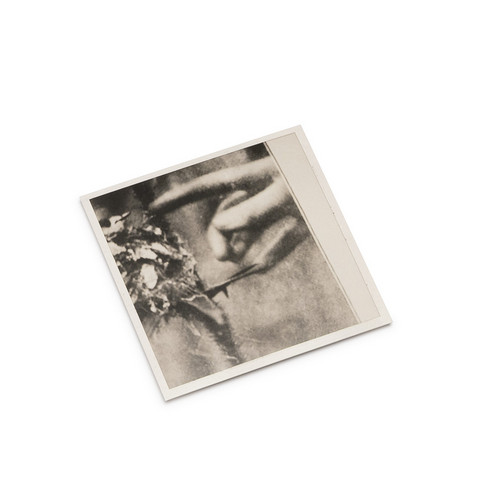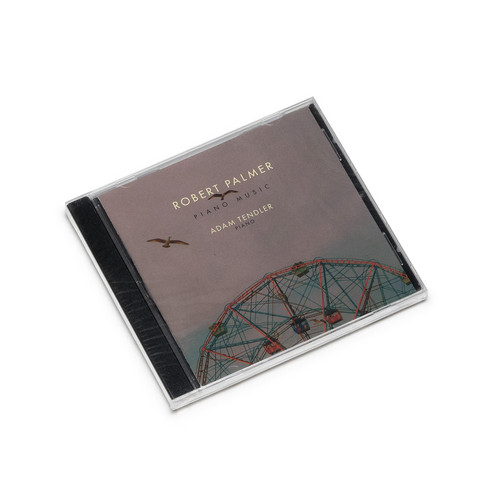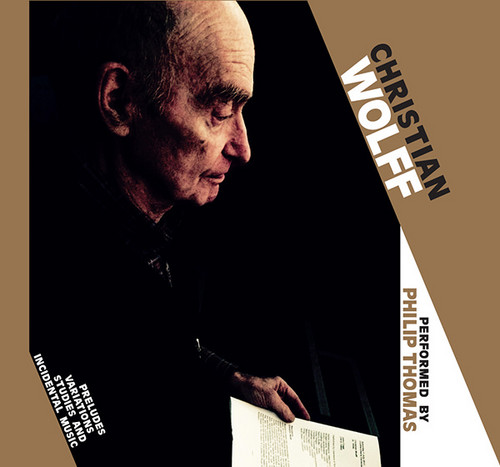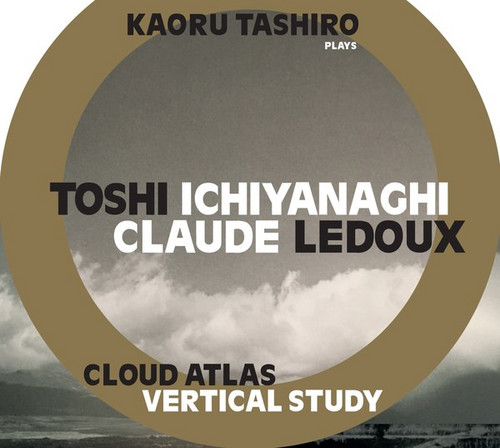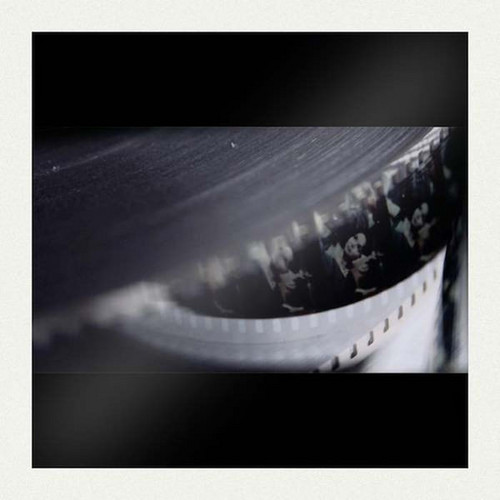Three Realizations For Ensembles
Three compositions written by Francisco Meirino for ensembles. Utilizing pitch and timbre of traditional acoustic instruments Meirino’s unique compositional voice speaks out. Guiding the listener through tension and decompression, unease and malaise. Performed with Ensemble Vortex and Ensemble Phoenix in Basel, recorded during 2016-2019.Born in Spain in 1975, Meirino is active since 1994 (as Phroq until 2009) in experimental music and live performance. His music explores the tension between pro…
The Nigger Series
Ltd Repress available. 2LPs in bundle, Color Vinyl. 180gr Audiophile pressing. Including printed inner sleeve housing a Nagaoka anti-static record sleeve, plus an original insert that functions as Obi. Housed in a fold-out outer sleeve. It’s little wonder that Julius Eastman (who died in 1990 under unexplained circumstances), remained the supreme underground composer. He was Afro-American and gay, a composer who rocked the cerebral world of process music with his explosions of free improvisation…
Barricades
**500 copies** This album contains LA-based composer Michael Pisaro's recent composition Barricades, a 63-minute piece for piano and electronics. Consisting of thirteen studies (piano pieces, some with electronics) and two electronic interludes, the piece is performed by Israel-based pianist Shira Legmann, with Pisaro on electronics. Legmann's clean, supple yet solid piano sounds, employing a wide dynamic range, add a sense of organic life to the composition. Her whispery nuances and mysterious …
Lettres et Replis
**500 copies** This album contains six pieces written by French composer / artist Bruno Duplant, all composed and realized by Dutch pianist / composer Reinier van Houdt. Duplant's scores Lettres (pour Reinier van Houdt) (2017) are three letter-form scores personally addressed to van Houdt containing letter sequences distributed across the page. Trois replis d'incertitude (2018) are also three letter-form scores but with the notion of 'repli' (meaning 'fold' in a Deleuzian postmodern baroque sens…
Cheminant
**500 copies** This is French composer / pianist Melaine Dalibert's third solo piano album, following his well-received 2018 album Musique pour le lever du jour and 2017 album Ressac. Cheminant contains a diverse array of Dalibert's unique compositions for solo piano, ranging from the up-tempo rhythmic Percolations performed masterfully by Dalibert's right hand, to the slow, prolonged meditative Music in an octave and Cheminant, to the kaleidoscopic Étude II with the repetitive hammered chords, …
The Claviorganum and the Violin
**250 copies** This is the first published recording of Michel Samson since his unparalleled work with Albert Ayler’s quintet in the late 1960s. Samson’s violin playing is outstanding. His great exuberance and ecstasy, all sliding through an interlocking sadness. The collection on this LP holds numerous 17th-Century works of the Italian baroque, performed by Michel Samson and his wife, Rebecca. It showcases some of the earliest music composed for the violin as a featured soloist. Rebecca accompa…
Canto
**300 copies** Jon Mueller is a multi-faceted percussionist, presenting his latest body of work in Canto for gongs, voice, and percussion. In his solo work that spans two decades, Mueller has embarked on a lengthy exploration of the timbres, the dissonance, and the physicality of repetition from his array of percussive instruments. Gongs had long been a part of his repertoire, but here on Canto he addresses their specific sonic attributes in conjunction with extended vocal techniques bolstered t…
A Porthole (I)
**300 copies on aqua blue vinyl** French modern-classical quartet Astrïd return with the first part of a new release entitled A Porthole. Conceptually the two records work in unison, focusing on portholes into the abyss, with part one delving into the depths of the deep sea. The tracks are named after various strains of seaweed, the artwork depicting dark waves and uncertainty. Part two will follow in a year time and will turn its attention to the night sky and constellations. A Porthole continu…
Arc
Recorded in May 2018, Arc is a Bertrand Denzler’s composition performed by string ensemble CoÔ. Founded by Félicie Bazelaire, CoÔ is a string ensemble bringing together string players of ONCEIM (Orchestre des Nouvelles Créations, Expérimentations et Improvisations Musicales, created and directed by Frédéric Blondy). CoÔ aims to build new directions in instrument research, and create a new repertoire for bowed strings. Félicie Bazelaire works with musicians who are composers and improvisers such …
Flores
**2021 stock** Flores, like any other work of Maria de Alvear, deals with the ideal of inner freedom. This is not a mere claim, it is manifested in the shape of the piece itself. Written in the author's typical mixture of composition and notated improvisation, the text leaves a certain scope to the seven instrumentalists as to the elaboration of the rhythm and at times also the intonation. The score has almost no directives for the parts of the two singers: what and how the singing is performed …
Raga Virga (Live At Montalbâne 17.6.2011)
**2019 stock* * Indian Dhrupad songs meet the chants of Hildegard of Bingen: this extraordinary encounter took place in 2011 at the Montalbâne Festival. It was a successful experiment in a concert that linked together two worlds that at first glance have nothing in common. But this is deceptive, since both musical worlds follow the rules of modal music and can thus lay, intertwine, and harmonize wonderfully with one another. And both worlds come from the context of contemplation in monasteries a…
Solo for voice 58 : 18 microtonal ragas
**2021 stock** The world premiere recording of Solo for Voice 58 by legendary American avant-garde composer John Cage. Italian-German dhrupad singer Amelia Cuni is the ideal interpreter, trained in classical Indian singing but also able to improvise on ragas in a new music context. Cuni developed from Cage’s score of eighteen raga scales a remarkable and unique interpretation that belongs to both the classical Indian and Western experimental traditions. Includes an extensive booklet with essays …
Ways For an Orchestra
Following three beautiful studio albums, Minton and Weston are back with an outstanding program of orchestral arrangements. The music flows with great pathos through renditions of their own most memorable compositions alongside pieces by Eric Dolphy, Luc Ex, Lindsay Cooper, Jacques Brel and others. Music by Phil Minton, Veryan Weston, Eric Dolphy, Arthur Sullivan, Jerry Leiber, Mike Stoller, Lindsay Cooper, Luc Ex, Jacques Brel
Chirality
The new Eyvind Kang album was recorded in Italy with a 25 piece mixed orchestra of traditional strings and winds, with the addition of Moog synthesizer, accordion, percussion, field recordings and voice. It features vocals by Alan Bishop, co-founder of Sun City Girls. Eyvind Kang conductor, chironomy, violaAlan Bishop voice, field recordingsMarco Dalpane accordion, moog synthesizerMG_INC Orchestra:Ferenc Vojnic Hajduk 1st violin; Eliana de Candia 1st violin; Giulia Camardella 1st violin; Eleonor…
Cul de Sac
**500 copies** After "Mars II" and "Fortune de Mer", the album Frederik made together with Timo Van Luijk, Croene releases "Cul de Sac": a record where he explores the boundaries and limits of the piano. A mind-blowing journey through his soul and his past. After graduating from Conservatories in 1999 Frederik Croene embarked on several projects in which he would reflect on the ever-changing and multi-layered identities of the classical pianist. As the Gestalt of his instrument is grounded in 19…
Deux Songes (Les Jours Sont Faits Pour Expliquer Les Nuits)
** 300 copies** French musician Bruno Duplant is one of the most talked-about artists on the experimental music scene today. In recent years he's presented many outstanding composed pieces and released a succession of excellent recordings on labels around the world. The abundance and vitality of his work are remarkable. On this album, two compositions by Duplant are performed by Ordinary Affects, led by Boston-based musician/composer Morgan Evans-Weiler. Ordinary Affects is an experimental music…
Piano Music
Robert Palmer (1915-2010) produced more than ninety symphonic, choral, chamber, and solo works throughout his career, earning a reputation in the mid-twentieth century as one of the country's leading, most daring, and -- at the same time -- appealing modernists. Palmer's unique musical language combined a deeply emotional impulse with complex counterpoint and rhythmic structures, drawing comparisons to Hindemith, Bartók, Lou Harrison, even Brahms. Aaron Copland famously included Palmer on his 19…
Preludes, Variations, Studies and Incidental Music
These two discs reveal Christian Wolff as a composer fully exploring, in different ways, the continuum between music which is highly fragmented, embracing extended silences [composed or indeterminate], to that which is more progressive and seemingly driven, albeit taking in disarming and unconventional routes. As a body of repertoire, these works are remarkable for their freshness of musical thought and energy (John Cage considered Wolff to be the most 'musical' of the experimental composers).Ch…
Cloud Atlas/Vertical Study
Cloud Atlas is a collection of ten short pieces composed by Toshi Ichiyanagi between 1985 to 1999. Vertical Study gathers rare pieces composed by Claude Ledoux. Both are performed by Japanese pianist Kaoru Tashiro. "Kaoru
produces serene, yet rich sound texture; the fluctuation of beat and
the perspective of the motif are ingenious. I hope many more people will
taste this joy of finding a grain of gold with your own eyes and ears,
from her commercialism-unrelated, sincere and an experimental…
What We Leave Behind: Jean-Luc Godard Archives - Remixes
In a fine tribute to the pivotal events of Mai ’68, Ricardo Villalobos, Jan Jelinek and Petre Inspirescu remix Soundwalk Collective’s collages of archival Jean-Luc Godard material in impressionistic ways for the ‘floor. Across the front, Ricardo V smears the smoky, jazz-wise source material of Death is the Enemy into a bustle of splayed drums and voices with a Gauloises-wisp quality, gradually resolving into a rolling momentum that melts out into a more fractious, psychedelic experience. On th…
